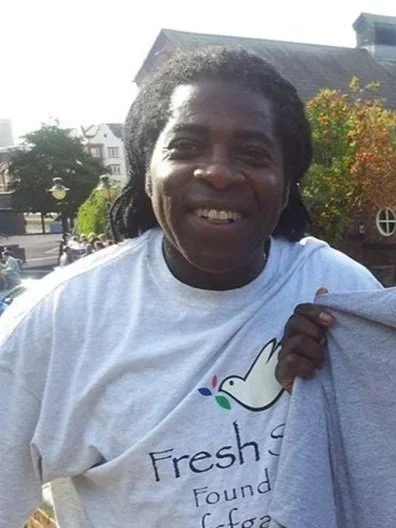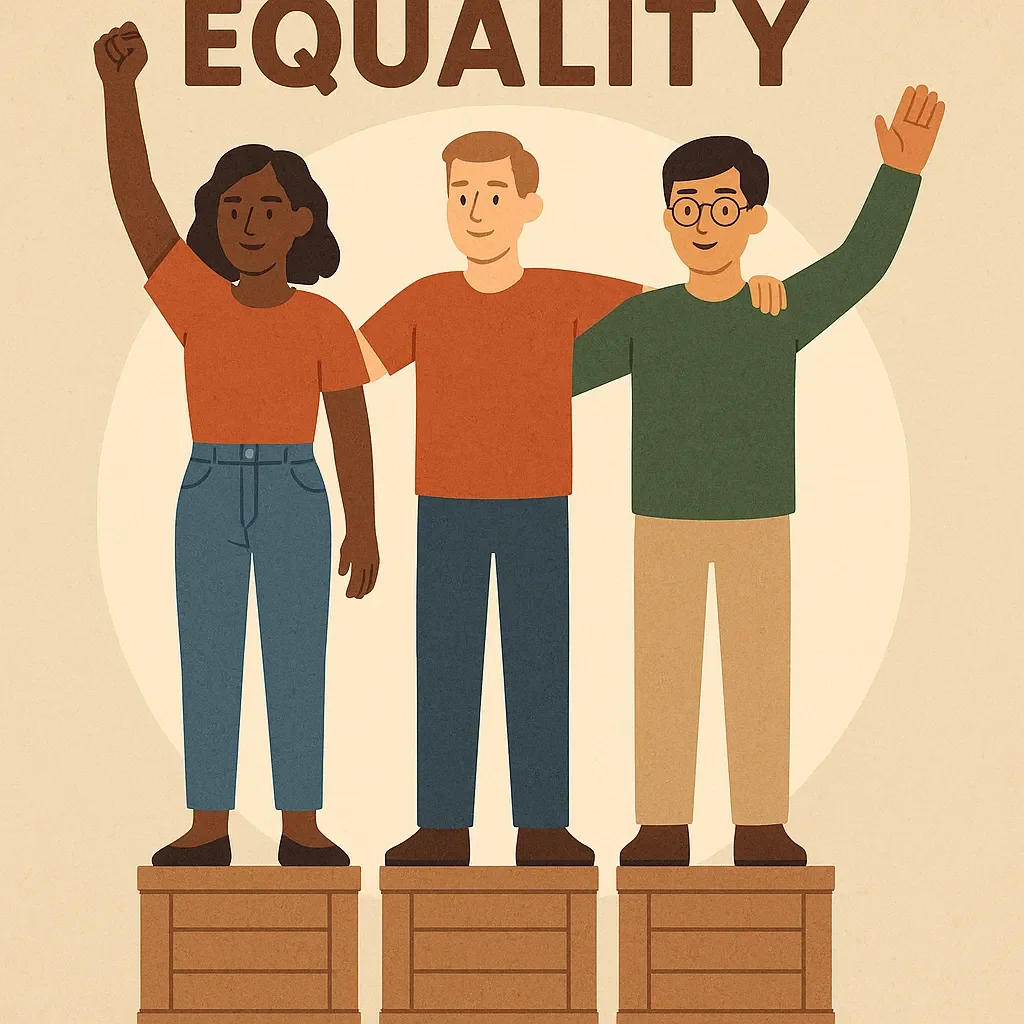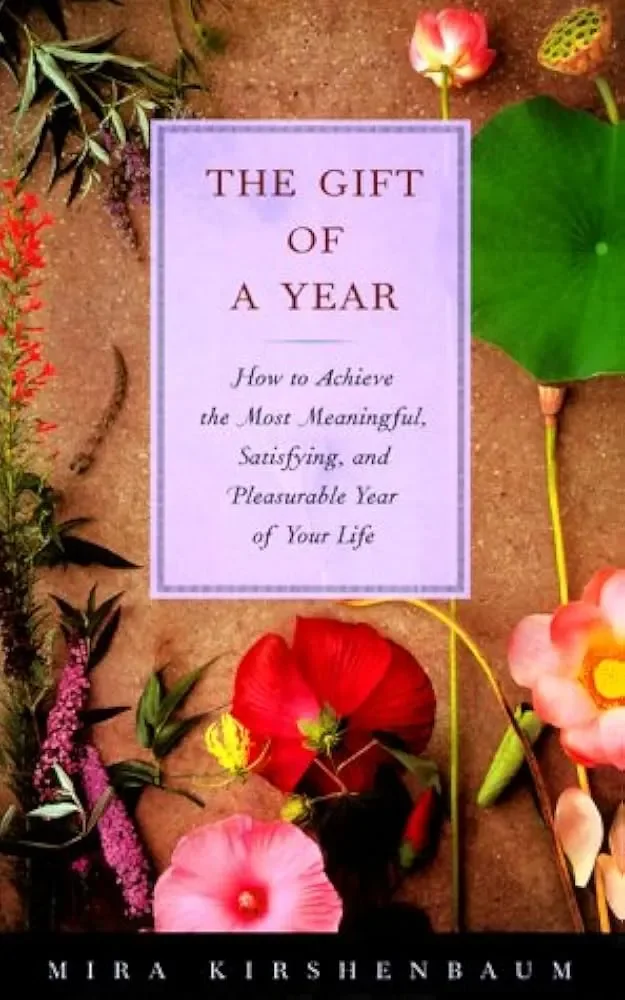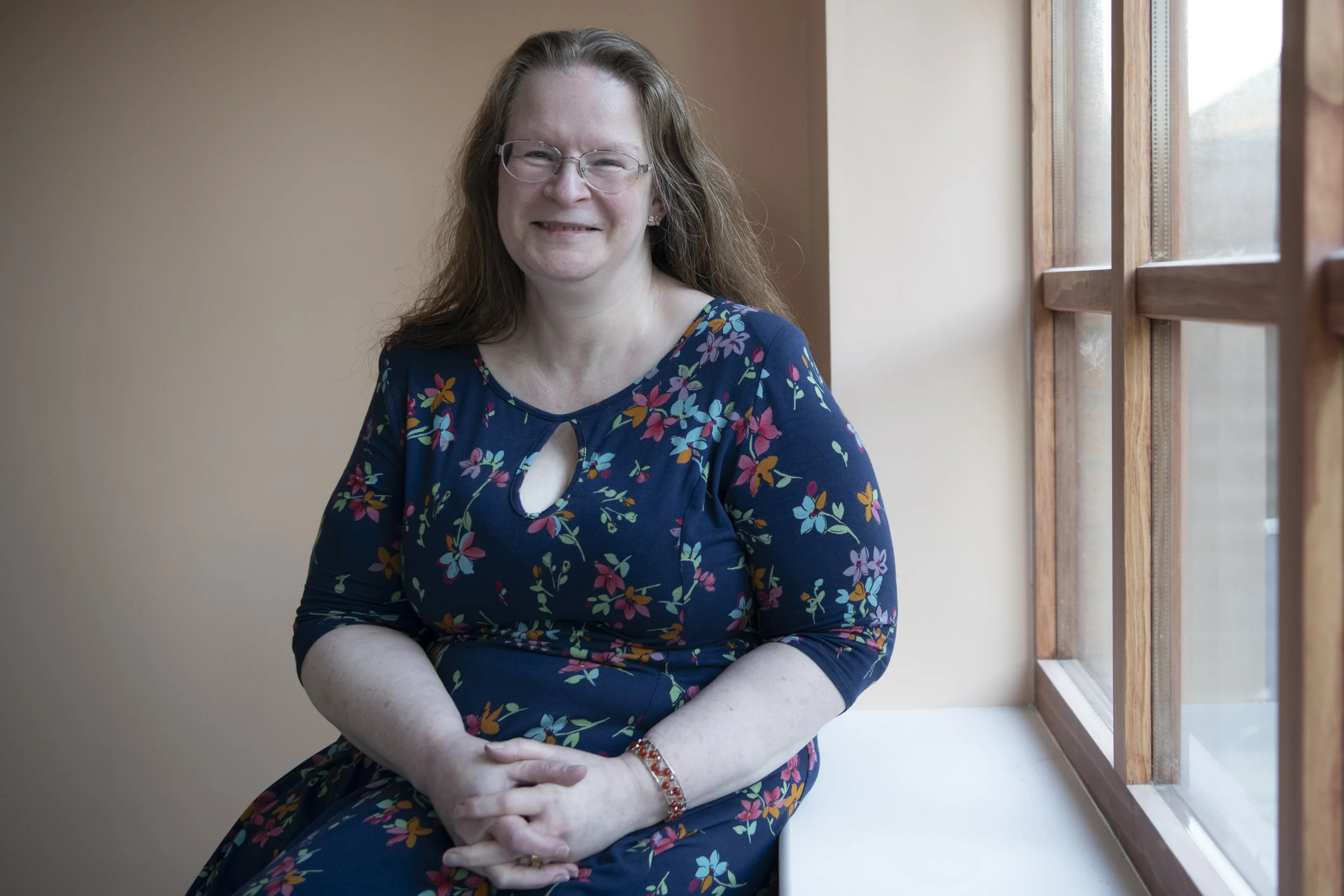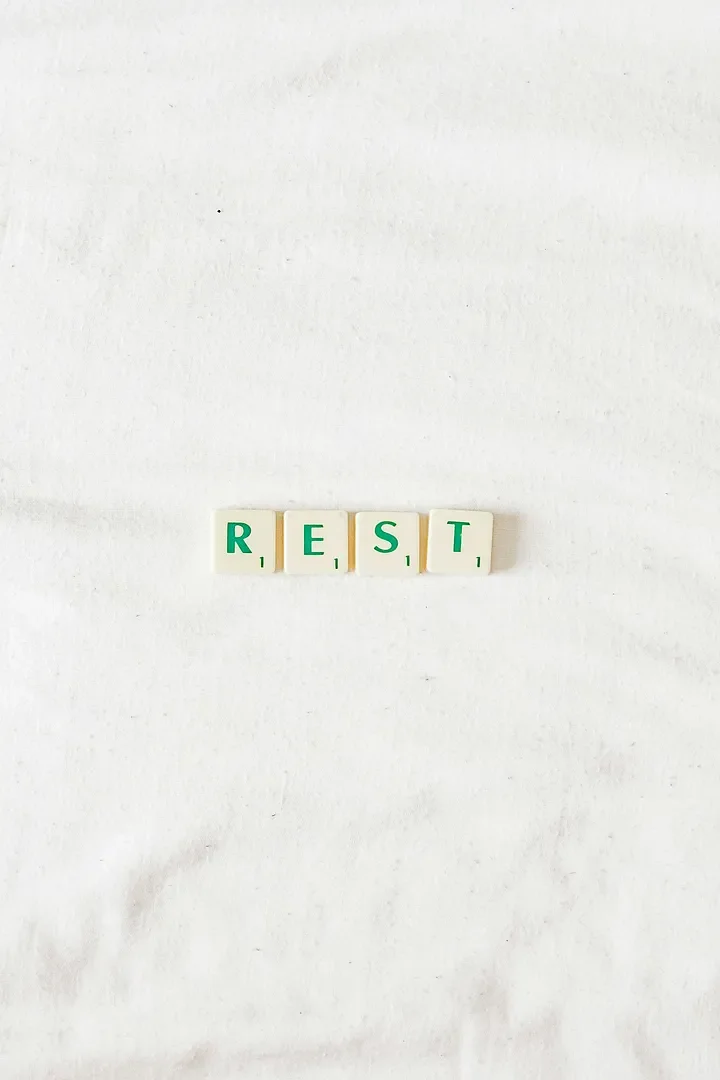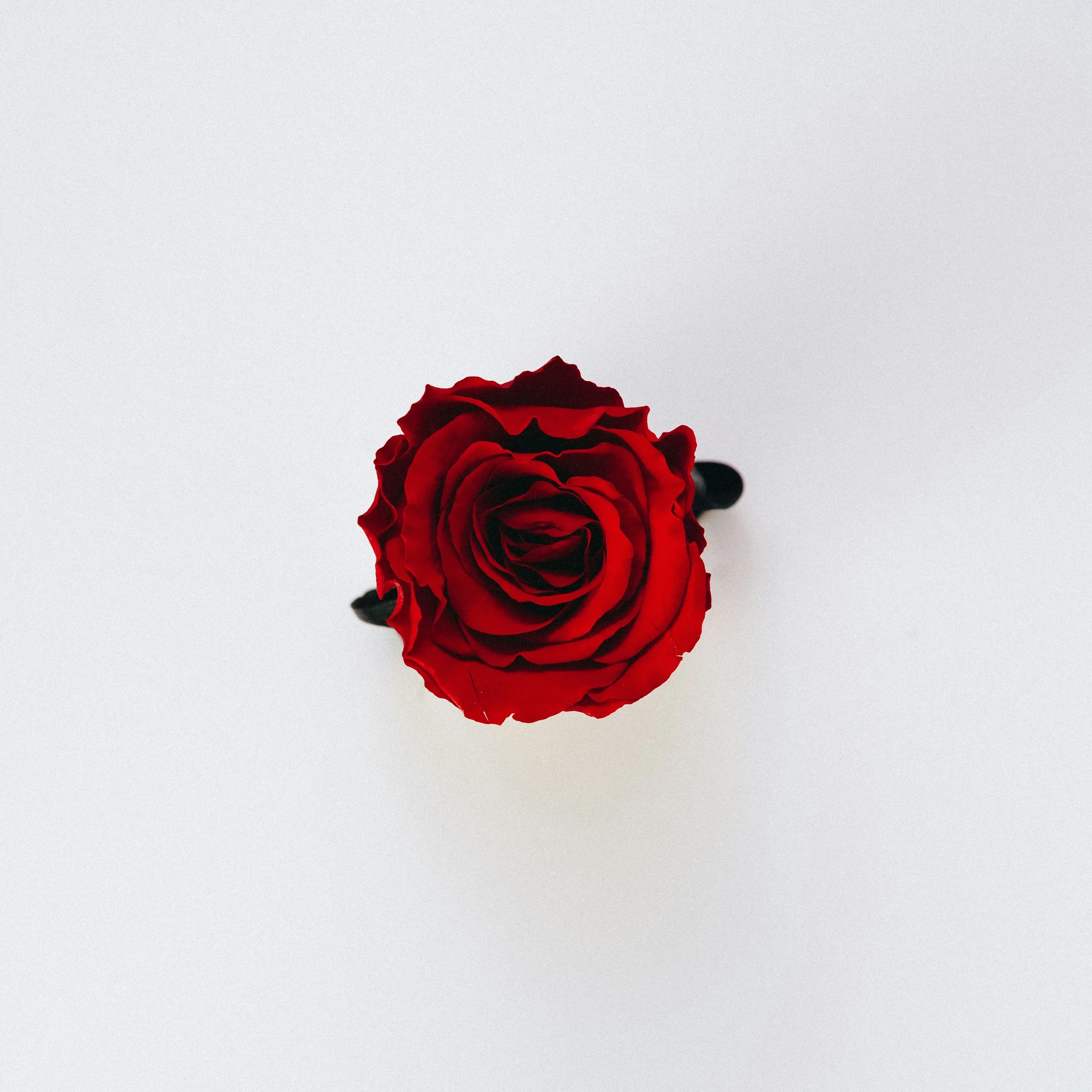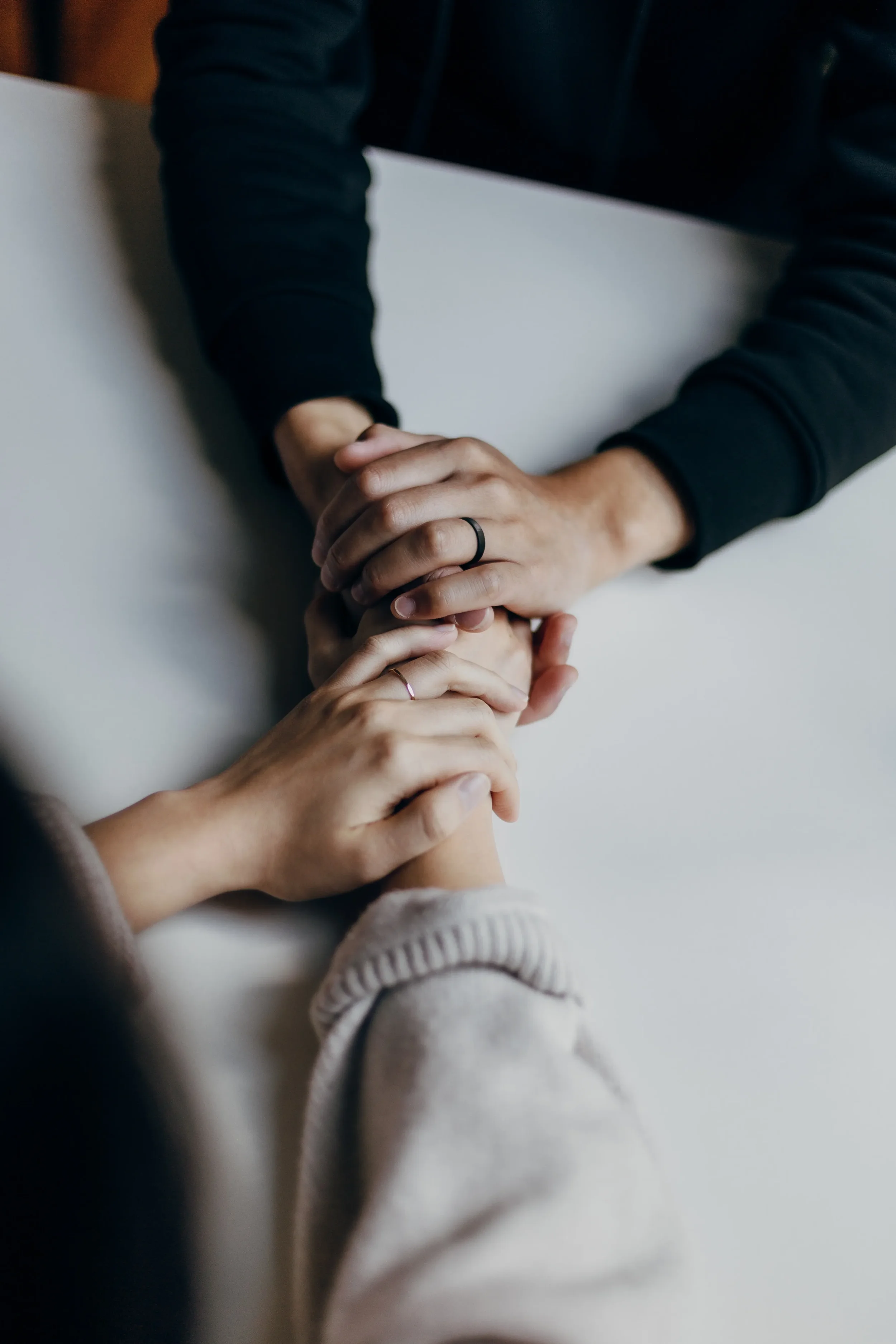Lives
Strategic aim: Amplify the voice of families after ABI so their unique experiences are heard, and their individual needs understood.
Letters to self
We invited family members of people with ABI to write about their experiences of trying to make sense of the world of brain injury in the form of a letter to their past self.
This project was funded by the University of Derby Knowledge Exchange Impact Accelerator Fund
You can download a copy of our letters to self booklet here…
Click HERE to see our brand new Letters to Self film. New for 2026!
Want to get involved?
If you would like to write your own letter and add this to our collection please download our project brief and send it to us via anchorpoint@UKABIF.org.uk
Equal Treatment for Carers in Society
By Wal Warmington
In a peculiar way l’m both grateful and fortunate in my current position as a carer, caring for my partner and my brother. It’s not that l’m a martyr wishing for more things to coordinate, arrange and carry out. But rather l feel humbled, at times, to be able to learn from those I care for: namely a brother with learning disabilities and acute rheumatoid arthritis; and a partner with ABI who is going through a series of 4 operations to replace her hips and knees having been thrown through a house window by a car that mounted a pavement back in 1990.
I feel my humanity is regularly tested within the various systems that l face in my caring role and that a particular approach is necessary if I’m to push for equal treatment for myself, whilst also safeguarding my mental well-being.
This blog piece briefly explores what ‘equal treatment for carers in society’ means for me currently and some of the practices and observations, from a black male perspective, that l have found to be both pertinent and helpful.
Recognition and self worth is at the heart of my challenges as a carer. The praise and encouragement l receive from family and friends helps shore up my emotional support and gives timely reminders of trying not to do too much. It also helps to counteract those times when l feel invisible and incidental when dealing with agencies, appointments and activities that sometimes run seamlessly across days and weeks.
With the near universality of communication barriers around accessing health services, e.g. call wait times, website logins, etc., the feeling of being dehumanised can be like trying to find your way in dense fog.
When feeling like this, seeking equal treatment starts with trying to hold on to my dignity as a human being who facilitates happenings and change for someone else without disappearing in the process. Despite the strategic decision-making and creativity l practice, this position causes me to wonder how possible it is to gain equal treatment when equal access at the starting point increases the challenges at the onset.
Dignity is a curious dynamic and sometimes it can be positively activated by a simple, civil recognition, for example through a health professional calling you by your first name or simply saying ‘thank you’.
I recall a recent time when l felt angry at the manner l was spoken to. Think of the many ways you could ask: “and who are you?” and the various meanings that could flow from this depending on the intonation. This was the question asked of me by a white staff nurse conducting a pre-op hip assessment with my wife (who is also white). As we came into the room, she on her crutches, the Staff Nurse asked me the above question with such disdain that I almost swore. In the milli-seconds that followed I realised I had to revert to a polite assertiveness in giving her a curt reply back that: ‘I was her husband’; followed by a concise summary of my wife’s medical history to this point. Hiding her near surprise at my summary, she hardly acknowledged me as she tried to bring up my wife’s case notes on her computer screen. She then conducted the remaining pre-op meeting in a formal way by being civil towards my wife and rendering me invisible over the next 15 minutes.
In these moments I realise how the challenges for equal treatment are both hidden and contain power dynamics that can only be overcome by being dignified and not allowing such incidents to jeopardise an operation that has been nearly 12 months in the waiting!
I have sympathy (indeed empathy) for those employees working and having to manage impersonal systems but if I’m to secure some kind of equal treatment I attempt to model civility, use first names where possible and resist reacting to those personality types that may exacerbate institutional racism on a personal level.
A further recent example highlighted the role technology appears to play in diminishing opportunities for carers to tell their stories or experiences. Going to the theatre used to be fairly straightforward when booking and asking for a carer’s companion ticket which were widely available. However, a recent attempt to do this led to innumerable unanswered calls and trying to navigate a very confusing website in trying to apply for a Nimbus card. Again, in being polite and assertive with theatre staff, there seemed to be no acknowledgement of the challenges involved in applying for the card online (at least 5 hours administrative work for me). Asking why theatre goers with, for example, head injuries and limited IT skills and confidence, couldn’t bring their paperwork into the theatre to be processed was met with a stoic policy reply directing me back to the Nimbus helpline.
Similar experiences occurred when applying for my brother’s blue badge online where the bureaucracy, limited assistance and lengthy wait times of local authority assessments resulted in me experiencing excessive emotional stress. From this I learnt again that often ‘systems’ only want your data to populate a field before giving you an answer. They don’t need, or want, your personal context or to provide someone who can listen to you and your particular issues.
For me the challenges of ‘equal treatment’ cannot be separated from ‘equal access’ and ‘equal outcomes’ and as our society adopts more technology in directing, and controlling our lives, these challenges can only increase in number, resulting in more unequal treatment being embedded in processes and interactions. Such activity devalues human experience and lessens our voices and personal histories. Furthermore, in terms of social policy decisions around entitlement and resource allocation it is clear that securing equal treatment for carers, and those cared for, will be an ongoing challenge:
https://www.theguardian.com/commentisfree/2025/mar/30/labour-attack-disabled-people-benefits-cuts
So, is equal treatment for carers attainable or just a myth? Some days the mini-victories and relational breakthroughs reflect equal treatment that has been fought for and not necessarily given. However, the struggle is always present and all I can try to do is review, reflect, learn and go again in my attempts to navigate the systems with dignity and respect for myself and those l care for.
I remain motivated by, and mindful of, the timeless words of Bob Marley:
Get up, stand up — stand up for your rights….
Get up, stand up — don’t give up the fight!
Lives Blogs
My Role as a Carer after Brain Injury
By Bill Revans
Between February 2013 and May 2017 my late wife Karen lived with an Acquired Brain Injury resulting from a Subarachnoid Brain Haemorrhage. She was lucky to survive, but overnight she went from being an A Level Lecturer to being Aphasic and with significantly impaired cognitive function.
And I became her carer.
Instead of being a Senior Leader in a secondary school and on the Aspiring Headteacher Programme, I was helping an Oxford graduate learn to read. And supporting our three teenage children, who in their turn became young carers.
Tragedy struck again when she was diagnosed with breast cancer in 2014 and then when the cancer metastasised to her liver and spine she received a terminal diagnosis and needed more care than I could provide.
I knew that a return to teaching was not on the cards, so I stood to be a Liberal Democrat Councillor in Somerset and I knew that I could start to use my experience to influence the support given to carers and working age adults with learning impairment. It is now my privilege to be the Leader of Somerset Council.
My party leader Sir Ed Davey is also a carer. His son John has a brain condition that means he struggles with walking and talking. As a child he was also a carer for his terminally ill mum.
Supporting our unpaid carers has been put front and centre in LibDem policy.
Our 2025 manifesto said:
“Millions of unpaid carers across the UK do a remarkable and important job looking after loved ones. They face big challenges every single day, and they deserve far more support. But carers are far too often forgotten and ignored by people in power.
Liberal Democrats understand that we can only save the NHS and fix care if we properly support unpaid carers.
We will increase Carer’s Allowance by £20 a week, and expand eligibility for it by:
Raising the amount carers can earn and introducing an earnings taper to end the unfair cliff-edge.
Reducing the number of hours’ care per week required.
Extending it to carers in full-time education.
We will also:
Stop the DWP from unfairly pursuing carers for old overpayments of Carer’s Allowance.
Introduce a statutory guarantee of regular respite breaks for unpaid carers.
Introduce paid carer’s leave, building on the new entitlement to unpaid leave secured by the Liberal Democrats.
Make caring a protected characteristic under the Equality Act 2010 and require employers to make reasonable adjustments to enable employees with caring responsibilities to provide that care.
Introduce a Young Carers Pupil Premium as part of an ‘Education Guarantee’ for young carers.”
Regrettably, we are now learning of proposed changes to PIP and Carers Allowance that will impact many people with disabilities and their carers. It is estimated that 150,000 people will lose entitlement to carers’ benefits by 2029. There is still much to do to raise political awareness of Acquired Brain Injury, its impact on families and potential policy solutions.
The importance of finding time to curate my bubble of joy
by Sue Jackson
A head injury or a stroke is an event, but the recovery is a process, and quite a long, drawn-out process for all concerned, not just the person with the brain injury. We’re about eighteen years on from my husband’s brain injury and six-and-a-half years on from his stroke. While the majority of the time my focus has to be on the day-to-day and sometimes moment-by-moment reality of trying to work full-time whilst also being a sole carer for someone with multiple cognitive impairments, at the start of the year I try to make time to stop and reflect on what I’m finding most difficult to cope with and how I might explore finding ways to help myself deal with it better.
A long time ago I read a wonderful book by Mira Kirshenbaum called The Gift of a Year. In it she talks about some of the problems facing women. According to her, mine is the gender that is expected to put other people’s needs first, but in the process of running around subsuming ourselves to facilitate the lives of others we end up putting our interests, hobbies, dreams and ambitions onto the back burner. She points out that we can have so many things on the back burner that stuff starts falling off, and thus we lose important parts of ourselves.
Starvation from those things that matter to us, be they mental, emotional, physical or spiritual in nature, leaves us with a profound lack of energy, vigour, vitality, and enthusiasm for life. Such inanition increases our vulnerability to stress leading to increased emotional reactivity, problems with decision-making and fatigue. If prolonged, it can lead to burnout. Our hobbies and interests, dreams and ambitions, self-care and social contact aren’t optional extras, they’re important ways of giving our lives meaning and are vital for our health and wellbeing. Lives without those things are tough, and all those affected require treating with compassion and forbearance. Something that seems like it is in increasingly short supply in our society. So, what to do?
In her book, Kirschenbaum suggests giving yourself a year in which you take small amount of time for yourself on a regular basis to do one thing for yourself. She suggests 15 minutes, which isn’t very long; indeed, it’s such a short amount of time that it’s difficult for other people to complain about. It doesn’t sound like it would be long enough for you to achieve anything, but if you read her book, you’ll be surprised at what the women who follow her suggestion do with their time and where it leads them.
Following Kirschenbaum’s lead, each year I try and identify a theme I think will be worth exploring. For example, early on there was the year of learning where I read a lot of books and other materials to educate myself about what had happened to my husband and how I could best support him. It would have helped if I’d been signposted to useful stuff by the healthcare professionals involved in his care, but that didn’t happen. Then there was the year of radical honesty where I experimented with expressing how I was feeling which unfortunately went slightly pear-shaped and ended up being dubbed the year of the f-bomb — hmmm. And more recently there was the year of grace and patience when I realised that having chosen to stay with my husband, I needed to learn how to stop being angry about what had happened to us to be able to explore various ways in which I could keep calm and carry on.
It’s not easy making yourself OK with something that isn’t OK. The stroke has changed my husband in lots of ways, and I’ve had to relearn his character and personality. Every single thing that we do, and every aspect of the way that we live our lives has changed. The mental effort involved in dealing with that has been overwhelming. Thanks to the stroke, my husband is more emotionally reactive and prone to stress and anxiety than he used to be, which can negatively affect his cognition, and if he sees me getting stressed it makes him worse. As a result, I feel like I have to spend a lot of time pretending that I’m OK even when I’m not.
There are times when it feels like this situation requires me to be the human equivalent of a self-pruning bonsai tree; containing and controlling myself as much as possible and getting thoroughly bent out of shape in the process. Because on top of having to work, run the house and provide his care, it regularly feels that if I want to keep him at optimal cognitive functioning, I’m only able to have reactions that he can cope with. So, no eye-rolling and sighing with exasperation when I’ve been told the same thing for the umpteenth time. No sub-vocal swearing because I’ve been interrupted so many times I now have no idea how I’m going to get my work finished in time. And certainly, no crying because I’m over-tired, I’ve got a migraine that feels like someone stuck an ice-pick through my left temple, and he’s forgotten the conversations we’ve had about what we’re going to be doing and he’s distressed and unhappy at being reminded and now his paranoia has come out to play and he’s accusing me of being deliberately unhelpful and wanting to make him look bad which makes me feel sick with anxiety that he could even think that. (And, breathe…)
Having managed to acknowledge, address and reduce my anger (and, yes, the associated effing and jeffing) about how we’ve both been forced to change, I decided that my theme for 2024 needed to be something more positive, hence the year of curating my bubble of joy. This has turned out to be more than simply cultivating an attitude of gratitude, important though that is. And while reading (currently my only hobby) can give me great joy and is fabulous as a restorative escape at lunchtime or in the evening, it’s not a practical response during the day. For instance, sticking my nose in a book at the point where the cat has brought the bin over on himself and redecorated the floor with the contents in his pursuit of the cat nip that I’d chucked out because I thought it was way past it’s best isn’t going to work. This time last year I realised I need to work at keeping my humour muscles strong so I’m more likely to see the funny side of situations like that. After a year spent exploring the different ways that people find humour and joy in their lives, I find my older self is still as inspired by Billy Connolly’s joy in life and observational humour as my younger self was.
I’ve also discovered that while watching Billy’s back catalogue of films, stand-up shows and travelogues is a joy, passively watching and/or rehashing someone else’s material (which my brother and I used to do in the school playground to amuse our friends) isn’t as powerful as having my own brain get creatively humorous with what’s in front of me. Practise helps, and so I’ve taken to trying to give myself 15-minutes three times a week to work on writing funny stories. It means that when I’m doing routine tasks where my brain can wander and start ranting about how difficult things are, I can redirect it to thinking about my storytelling instead. As a sole carer my time is very limited and most weeks I only get the 15-minutes on a Saturday morning, and not always then. It makes such a difference when I have the time to do it that I will continue with it this year when my theme is ‘creating space’. Who knows where that will take me? What I know from previous years is that it will be interesting, at times challenging, and by the end of the year I will have learned a lot about myself and probably other people too.
Book group revelation: what Ian Rankin’s story Trip Trap tells us about life for female carers in this country
By Sue Jackson
We recently had Ian Rankin’s The Beat Goes On as our book group read. It’s a collection of stories featuring Inspector John Rebus. One of the stories Trip Trap, got me thinking about how society sees, supports, and deals with women who find themselves taking on the role of carer.
In the story we meet Grace Gallagher and her husband George for whom she’s a carer. As the story progresses, we discover that they had a son, but he was killed in an accident ten years before. Rebus gets involved when Doctor Atkin, who’s been attending George for years, is concerned that his recent fall down the stairs wasn’t an accident. Spoiler alert — the evidence shows that Grace has indeed pushed her husband down the stairs.
Grace is the focus of the story. A frail-looking woman, we discover that her life is dominated by her role as a carer; she spends nearly all her time with her husband providing for his every need. Rankin describes how she has half an hour to herself in a morning before her husband wakes up when she gets to enjoy a cup of tea and a cigarette at the kitchen table. She also gets an hour for herself later in the day when she goes to the bookies to place her husband’s daily bet on the horses. George doesn’t understand why it takes her so long, but Rankin tells us that Grace doesn’t want to admit that she takes the newspaper to the park to do the crossword, so she invents a series of meetings with neighbours or reasons for going to other shops. Beyond her husband, her only meaningful social contact is with a man she met in the park on a rainy day (in my book, Grace’s chat with the butcher about the quality of the meat she’s buying doesn’t count as meaningful social contact). For a few months they continue their accidental meetings in the park and then while she’s out shopping one day she overhears that he’s died and that’s the end of that.
In the aftermath of his death, we discover that George wasn’t a very nice man. Doctor Atkin describes him as cantankerous and says she’s “never heard him utter a civil word, never mind a please or a thank you”. Grace says he was bitter and that he took that bitterness out on her. His daughter-in-law is of the opinion that George “deserved everything he got.” So, Grace has been single-handedly waiting hand, foot, and finger on a man who’s verbally unkind and quite controlling.
Doctor Atkin says of Grace that she has “always [been] patient with him, always looking after him. The woman’s been an angel.” She also says that while she’s suspicious of George’s death, she doesn’t “want to accuse Grace of anything”. Rebus tells her in reply “You’re only doing your job.” Let’s stop here and consider this. Why is a doctor expecting a human being to behave like an angel? Has it never occurred to the good doctor that she has a duty of care for Grace’s mental health and wellbeing as well as for George’s? The way Rankin has written this implies that carers are just background people unworthy of any support, care, or attention and from whom we expect miraculously patient behaviour for years and end, and then when they can’t deliver that we throw the book at them. I know for myself, you can find yourself believing that you should be able to provide the care your partner needs, even in the face of evidence that says that it’s too much and you need help.
We have a societal discourse that says we’re responsible for our own health and wellbeing, and some of you reading this will be thinking, ‘why didn’t Grace ask for help?’ My own experience of how healthcare professionals treat family members of patients tends to suggest that we’re routinely ignored; and people can become habituated to being ignored. You can also get so used to being focussed on the other person’s needs that you lose sight of what you need to do to look after yourself. Humans aren’t designed to cope with this kind of chronic stress for days on end, let alone, weeks, months, or years, and yet that’s what can happen when you become a carer. I’m not saying that what Grace has done is right, but I’m wondering if Doctor Atkin also bears some culpability for George’s death. I’d like to know whether she ever once asked Grace how she was getting on, and if she needed any help. Rankin doesn’t say, but I’m guessing that the answer is never.
As for Rebus, he asks Grace if her action is a cry for help gone wrong — did she push her husband down the stairs in the hope that he’d end up in hospital and then she’d get a break from him? What a thing to suggest! And if art is taken as representing life, then that implies that Rebus/Rankin knows at some level that what’s been asked of Grace is too much. Human beings need a rest from working or they can find themselves making poor choices and acting out of desperation. Rankin also describes Rebus’s disquiet at prosecuting Grace and how he feels as though he’s doing something wrong. And he’d be right to feel uncomfortable and ashamed. Grace has been badly let down by a system that should have been looking out for her as much as it was looking out for George.
Social care is a mess in this country and is increasingly only available to those who can afford it. There are questions to be asked and answered about why as a society we’re prepared to put up with this situation. Why do the powers that be expect (mostly female) untrained members of the public to take on a burden of care that no professional would be allowed to undertake? Patients being discharged from hospital should be able to expect that they will be kept safe, but we still don’t seem to have reached a point where there’s proper consideration given to helping, supporting, and protecting family members who have to provide care. Someone with a brain injury can be more than cantankerous, they can be violently unpredictable and yet hospital staff will still want to discharge them back to their home for their family to deal with. Families that may include young children who will end up seeing and experiencing things from which they should have been protected.
What can we learn from the RNLI and Mountain Rescue about how to put carers on the map?
by Sue Jackson
My husband used to do a lot of walking and scrambling in the mountains. He managed to get back into it after he had his head injury fifteen years ago, but since his more recent stroke six years ago, no matter how much rehab he’s done, he’s still not been able to venture up any significant hills. We used to have an annual trip to our home county of Yorkshire every year, plus a couple of long weekend trips to places where my husband could work on collecting Nuttalls (mountains over 2,000 feet). For a long time after the stroke, he coped with the loss of his beloved mountains by avoiding them — he wouldn’t go anywhere that had mountains that he would once have been able to climb, and he avoided watching programmes about them on the television. Then, about 18-months ago, we watched A Year on Blencathra on TV, and he clearly enjoyed telling me about his glory days on the mountains. Now we often watch programmes of people out walking in the hills and we’ve discovered a whole series of programmes about people getting into difficulties and needing to be rescued.
We were watching Mountain Rescue one evening when I noticed that the narrator kept mentioning that the people who provide the service are volunteers. Not only that, but I saw these volunteers working side by side with people from the emergency services who treat them with respect. Interested, I watched Saving Lives at Sea, to find the same thing happening — the narrator emphasising how the people from the RNLI who go out in all weathers are volunteers, and again, I saw them working side by side with emergency services who treat them with respect. Which got me thinking. Why is it not like that for carers?
I often attend healthcare appointments with my husband. His cognitive difficulties combined with white coat syndrome means he finds such appointments challenging and stressful. At the very least, he likes to have me there to record the consultation, but if he’s not been sleeping well or is very poorly, he can need help understanding what the healthcare professional is saying to him and asking of him, and he may need to be prompted about key elements of his medical history. However, on arrival at the consulting room, the healthcare professionals often greet me with, ‘Why are you here?’ delivered in that tone beloved of teachers who believe they’ve found an errant student in a corridor during lesson time. My husband finds it humiliating to have to explain that he has cognitive difficulties, and you can’t tell what his problems are simply by looking at him. It would help if there was a note on his medical records that says he needs support, but there doesn’t seem to be, so it’s left to me to tender an explanation which justifies my presence while sparing his blushes. This is often greeted with gale force sighing. And I’ve lost count of the times I’ve been told, “Fine, you can stay, but you have to sit over there and be quiet” in a tone more suitable for addressing a three-year-old armed with time, a pen, and proximity to a blank wall.
Of course, this means that the person in the room who knows how to provide the necessary support to my husband has been relegated to the role of observer. I often wonder whether if I was a sign language interpreter and the healthcare professional involved in his care wasn’t, would they still insist that I sit in the corner and watch while they waved their arms around, or simply spoke loudly and slowly to him. Of course not. Because a BSL sign language person would be considered to have some useful skills while a carer clearly isn’t considered to have anything useful to contribute at all. And yet, if we use the ‘brain as computer’ analogy, my brain often has to act as an external hard drive and occasional reserve device for his brain.
I also wonder if the dismissive behaviour I’m subjected to as a carer originates in the way that carers are perceived. I’ve noticed that there’s been an increase in calling family members ‘informal carers’. The Cambridge dictionary says that informal is defined as ‘not formal or official, or suitable for casual situations and people’. (That certainly covers the times when I’ve had to sort things out at night clad in dressing gown and slippers!) The European Centre for Social Welfare Policy and Research describes informal care as ‘care given to dependent persons, such as the sick and elderly, outside the framework of organised, paid, professional work.’ (I’m pretty sure they don’t mean it as such, but that acknowledges that I’m having to do this for free on top of my day job.) The UK Care Guide notes that ‘informal care is often essential for people with dementia and other cognitive difficulties to be able to live and work in their community’. So, it matters, but there’s something about the fact that it’s care provided by family members in the home that means it’s not acknowledged as requiring either skill or expertise. And yet, dealing with someone with a brain injury often requires both of those things.
As carers, just like the RNLI and mountain rescue volunteers, we’re on call 24/7 and we give up our time to help someone else to do something that they want to do or get them out of a fix. But volunteer isn’t the right description for what I’m doing either. I didn’t volunteer for this — I was dumped into it by healthcare professionals with no warning or preparation. On the telly, the RNLI and mountain rescue volunteers go on training programmes, but there is no training available for family members who take on a caring role for someone with cognitive difficulties following brain injury. They often have to self-educate which means they may not know the technical language of healthcare but that doesn’t stop them from doing the job. It’s not easy — it’s complicated, demanding and tiring. The UK Care Guide notes that, ‘informal caregivers might experience a lack of recognition for the complex care they provide’ what they don’t mention is that this is not only in relation to wider society but can also relate to contacts with healthcare professionals who really ought to know better.
Family members who find themselves in a caring role following their loved one’s brain injury need to be seen and recognised as an important part of the caregiving that the patient needs. Health services and wider society need to support family members in doing that role and recognise the time, skill and experience it takes. And healthcare professionals need to learn how to work alongside family carers in the same way that emergency services personnel manage to do with the mountain rescue teams and the RNLI lifeboat crews on the telly. If they’re going to be made to keep doing it, family members need to be included on the map as a key part of the pathway of care for those with brain injuries.
Respite care: to rest or not to rest? That is the question; and the only answer!
By Wal Warmington
After decades of providing informal care, and over the last 3 years being an officially registered carer, l feel l’m at a critical stage of my life within my caring responsibilities. Through attending a local Headway Support Group and then registering with Birmingham Carers Hub, l have gained a useful and significant understanding of the ‘carer ecosystem’ and the myriad of support groups, activities, advice and guidance available to me in a local, regional and national level.
I have come to really value and learn much from hearing from fellow members of our Headway Support group where the varied practical and pragmatic responses to complex needs reflects carer’s in action who display determination, patience and courage, amidst being permanently challenged. Our discussions are sometimes coupled with anger, disappointment and bitterness about the systems that hinder progress and so affect the quality of care being given. However the group offers not just support but a sense of perspective, humour and practical ideas as we share and reflect on the caring relationships we are trying to manage.
From this network I recently had the opportunity to take part in a Carer’s Weekend Retreat two months ago and, looking back, can still identify a number of benefits that flowed out of that space. Being familiar with residential work from my professional work life, the prospect of this weekend was different in that this formal invitation gave me permission to take part. Amidst the blurred lines and busyness of caring for close loved ones it is often easy to feel guilty, or even selfish, about doing something for yourself.
In deciding to attend it felt like an objective first step in recognising the need to take time out to relax and focus on my own self-care.
With a programme that included Meditation, Yoga, Tai-Chi, Arts and Crafts and short walks, I appreciated the opportunity to take part, slow down and to enjoy and benefit from a range of creative activities on a social, emotional psychological and physical level.
These restorative body, mind and spirit activities were further enhanced by having delicious wholesome meals cooked for us and the time to appreciate food in a non hurried way; it was over these meal times that I was reminded again of the joy of food but also ‘eating mindfully’, in a way that allowed me to savour the combination of flavours but also aided my digestion!
Looking back, alongside these mealtimes and participating in the various activities with a large diverse group of Carers from varied social and cultural backgrounds, I am also conscious of how affirming the whole experience was and how much I learnt from listening to other people’s experience of caring. There was, and remains, a helpful benefit in realising that you are not alone and that there are hundreds, thousands (in fact millions!) of people providing care for others in their own unique ways. Transcending the challenges and difficulties of looking after another person or many people is often mundane, routine and physically and emotionally exhausting. The normalised experience of providing such care, and its debilitating effects, can often go unnoticed and this is where retreats, either alone or in groups, can have such beneficial outcomes. For me the benefits centred on:
· feeling valued and affirmed in my role through recognising and acting on my need for a break, in a guilt-free way;
· being out of my usual routine and experiencing how liberating that was even for a weekend;
· listening and learning from the experiences of other carers and regularly marvelling at how Carers have lived through traumatic life events and continue to show courage and determination in bringing and maintaining dignity for those they care for;
· another benefit was being reminded of the importance of drawing on support in a strategic way from family and friends should or when they offer practical help;
· benefiting from remembering again that, whilst caring might be highly personal and so personalised within specific varying contexts, it is also political in the sense that it comes at a cost which is both hidden and very evident. The financial cost of care and caring (or so called ‘social care’) is regularly discussed within our national politics by way of trying to ensure more equitable outcomes. However for me and my current situation, and no doubt for numerous others, it is the unseen effects or costs to our health and well-being that is often overlooked amidst our caring activities. So to safeguard our health and capacity to sustain our caring efforts I have come to more deeply recognise the benefits of retreating and taking time out.
Whether programmed or simply ‘doing nothing’ l now see a self imposed discipline of my own respite care as being crucial and the foundation around how I sustain myself. If we fail to rest there’s an increased likelihood that our own health may suffer and lead to further complications in our ability to care for those we care for. In loving those we care for it is a welcome and necessary act of self-love to simply stop and REST. So resting in order to carry on is vital for me as l seek different places where l can be renewed and restored in order to re-engage and re-enter into the relational dynamics of those I care for.
The long slow wait will soon be over,
Then reality will start to bite.
You’re coming home to only ME,
How can that be right?
And now you’re home, returned to me,
But hold on, just WHO ARE YOU?
This isn’t who you used to be,
You’re not the person I once knew.
All the while the world goes by,
And nobody asks about you.
You’re fine, they think, home at last,
No idea what we’re going through.
As the years go by, I see brief glimpses,
Of who you used to be.
People think I’m lucky you are here,
I don’t that share that sometimes I disagree.
This life is like a prison cell.
For a crime I’ve not committed.
For this sentence, there is no end.
To my fate I have submitted.
I know it could be different,
If some help would come along,
Or even just a friendly face,
To give me strength to carry on.
A life Rewritten: Invisible, Ignored, Depleted
A Poem by Sally Atkins
Today is not a normal day,
Yet it feels like any other.
But later as the day unfolds,
Our lives will change forever.
What has happened to you?
Lying in that bed.
Tubes, machines, and beeping things,
All framed around your head.
This place is loud and frightening,
You look like you might die.
All the while I sit beside you,
I can’t help but dwell on WHY?
Over time my heightened dread,
Is replaced with gnawing tension.
How long will this go on I think,
Life in suspended animation.
Then gradually you start to wake.
Now I feel like I might cope.
All the pain evaporates,
Replaced by a sense of hope.
Time goes by so slowly,
Wandering through these same old halls,
Its like a different world in here,
Hidden within these clean white walls.
Yet outside the world just goes on by.
I numbly float from day to day.
People ask me how you are.
‘Getting better’ is all I say.
I know soon you will be coming home,
I am excited but also scared.
How are we to cope with this?
I don’t yet feel prepared.
Where is the guidance that I need?
Someone to hold my hand?
The help that’s here is all for you.
I don’t know where I stand.
Bouncing the laundry basket and other coping strategies in lieu of exercise.
by Sue Jackson
Just lately I’ve been giving a lot of thought to how, as a carer I’m supposed to look after myself. When my husband first returned home after his stroke, as his sole carer I was doing well if I managed to find the time for a shower. Six years on, while I’ve nailed showering, I still struggle to find time to exercise. Six years is a long time, but during that period I’ve had to relearn my husband’s character and personality and work out how his various cognitive deficits can be supported and ameliorated so he can have a meaningful life and I’ve been project managing the building work required on our house to make it fit for purpose both now and in the future.
As a sole carer, I have to fit whatever I’m doing round my husband’s care needs, and that often means I’m having to do things at strange times. The brain injury he suffered disrupted his sleep-wake cycle and the subsequent stroke has made that worse. He has trouble sleeping, so if he’s in bed, I feel like I can only do quiet things to give him the best chance of resting. I don’t know when he’s going to get up, so I have no idea when he’s going to need assistance (for instance, yesterday he wanted lunch at 3pm). In addition to which, he’s prone to panicking if he gets up and doesn’t know where I am and can’t easily find me. While leaving a message to say that I’ve popped out for a walk by the bed or in the kitchen can work sometimes, if he’s very stressed, he can’t see the messages and gets himself in a right tizzy.
My health is also something of a problem. I have back problems courtesy of a car crash and a work-place accident. The pain and stiffness vary — some days I’m fine, but other days I move like a geriatric tortoise that’s taken a sleeping-pill. Added to which, I’ve had migraines all my life — some of them are so severe that they bring me to a standstill for several days. If you’ve never had one, be grateful. It’s like someone’s stuck an ice-pick in my head usually through one of my eyes. I get at least one most weeks, but thankfully these days not so many of the very severe ones where I really can’t do anything at all. Where once I would have been able to go to bed to try and sleep it off, these days I’ve got to try and keep going. And no, I don’t have a martyr complex, but I don’t enjoy being woken by my husband because he needs something during the night, and that goes double if he’s woken me when I’ve got a migraine, it somehow makes the pain worse. Through self-experimentation, I’ve found that as long as the pain isn’t too bad, I can use mindfulness techniques keep going with simple things done slowly which has the merit that I don’t fall too far behind with things when I’m not feeling well. I’ve had to accept that my husband’s memory is so poor he can’t remember how I’m feeling, so his disturbing of me isn’t going to stop.
I’m self-employed (because despite Government rhetoric and employment law no other employer is going to give me the flexibility I need), provide care for my husband, do all the cooking, shopping, washing, ironing, cleaning, etc, etc. Hoovering and dusting are not my favourite things — to such an extent I used to have a magnet on the fridge telling people they could look at the dust but please not to write in it. My mother told me it was slutty and to get rid of it, and to make friends with my duster. The fridge magnet had to go when we got the new kitchen because I’ve not got anything to stick it to anymore, but my relationship with the duster needs more work.
Doing tasks you don’t enjoy, and feeling like you’re being forced to do them week in week out while the other person who lives in the house seemingly does nothing but spend time on his hobbies and interests can feel profoundly unfair at times. That’s part of the reason I keep working — I’m very fortunate to be able to enjoy how I earn money even though the constant unpredictable interruptions I’m subjected to can leave me feeling frustrated and angry. I’ve learned I can’t express that in front of my husband; if he sees me getting stressed or distressed by something, then he gets panicky which negatively affects his cognitive functioning.
Over time I’ve discovered that I can reduce the mental ranting about how difficult my life is by making up songs with which to serenade the cat. I’m currently working on ‘The Cat with the Golden Paws’ to the tune of ‘The Man with the Golden Gun’. When it’s finished Garfield won’t enjoy it, but I will and that’s what matters. The need to vent out some of my anger has led to some interesting coping strategies. My husband doesn’t like gardening and will only spend time in the garden if it looks like Garfield and I are doing something interesting, like playing chase round the camelia bushes in the front garden. If I’m out there on my own, I’ve discovered that weeding and ripping the top off dandelions using a considerable amount of force while sustaining a sub-vocal rant is a very effective way of venting out some frustration.
On a similar note, I’ve discovered that if I’m interrupted while doing the laundry, an item of clothing that’s been balled up and launched back into the laundry basket with sufficient force will cause the basket to bounce. The angrier I am, the harder I throw, the further it goes (as long as I get the launch angle right). My record is three bounces. I once had an interesting discussion with an anger management specialist who told me that all expressions of anger should take a positive form. Hmm. For me, living with someone with a brain injury, I think there’s a case to be made for finding ways to vent some out safely. Besides which, watching the laundry basket hop along the landing reminds me of the Luggage from Terry Pratchett’s Discworld series and that takes me to reading. As a distraction it doesn’t come much better for me; books are portals into different worlds and a way of getting to meet a wide range of interesting characters without having to leave home to interact with them. Exercise requires effort and planning and when I’m tired and out of sorts at the end of the day, collapsing on a sofa with a handy book and a snuggly cat just feels right.
Thanks to the state of social care in this country, my life has to revolve around my husband’s care needs. As a sole carer I have to do all of what he requires all of the time. There’s no respite, and no help. But woe betide me if I slip up and get any of it wrong. The authorities that have no interest in helping me, will cheerfully throw the book at me if I fail in any aspect of my duty of care. My husband’s lack of insight into his own condition means he has no idea what it’s like for me living with him. Being on call 24/7, earning the money, having to pretend that I’m OK when things are stressful or difficult, and being responsible for keeping the house and our social life functioning all while living with what the World Health Organisation describes as one of the ten most difficult long term health conditions is challenging. No wonder I struggle to find the time to go for a walk or for any strength training or yoga practise.
Caring in Crisis, written by Gillian Dalley.
Reviewed by Sue Jackson
Subtitled: The Search for Reasons and Post-Pandemic Remedies, this book considers the history of social care and what the pandemic revealed in practice that had been suspected before. Care provision is something that successive Governments have been ignoring for some considerable time. Having taken up the mantra of ‘care in the community’, Dalley repeats several times that because it so poorly defined, ‘care in the community’ means ‘care by the community’ and that usually means ‘care provided by the women in the community’. That seems to be the case whether we’re thinking about childcare or caring for the sick and/or elderly. If I had a criticism of the book, it’s that it doesn’t include, review, or reference the studies on the psychosocial impact for people providing care in the community.
Dalley points out that social care is something that people are only interested in when they need it, at which point they are (probably) shocked to find that unless they’re very poverty stricken, they will be expected to navigate the world of care providers unsupported. Because it is left to ‘market forces’ there is no planning of provision of social care, and most councils don’t have a definitive list of what’s available in their area, let alone how good it is. It was an eye-opener to discover that the CQC doesn’t inspect care homes each year. And to find that care homes generally don’t have good links with local hospitals.
It’s a grim situation and Dalley concludes by thinking about what kind of changes are needed to make social care services fit for purpose now and in the future. The worry is that it is going to take a major overhaul of the system that will take years to bring in, and the Government is unlikely to want to take it on. In the meantime, while there is an acknowledgement that if the Government had to provide the level of social care provided by families across the land, they’d have to fund the equivalent of another NHS, there are no plans in place to provide meaningful support for the people providing that care. I learned a lot from this book, not least that families unlucky enough to have a member needing social care are going to find it very difficult to find something suitable for them that they can afford.
Carers need time for hobbies and a social life
By Sue Jackson
It took a casual conversation with my friend’s Mum about what I’m up to these days, to make me realise that I’m no longer a wife, but a carer and that my once interesting life rich with travel, hobbies, and interests, has shrunk down to doing my job, housework and running around after my husband. I felt ashamed and close to tears having to admit that all that remains is my love of books because I can manage to fit a bit of reading in round everything else. That conversation helped me to realise that the anger and resentment I’d been struggling with are not because I’m a bad person, but because I’m no longer able to live my own life. I’ve been reduced to supporting someone else to live their life instead.
For nearly six years I’ve been a carer for my husband who had a brain injury followed by a stroke which has left him with some mild physical impairments and quite a few cognitive problems. When people think of caring, they often seem to focus on the physical support that someone needs, but living with someone who needs support for their cognitive function is challenging. It’s a 24/7/365 day a year role. If I’m with him, the chances are he’ll need me to do something for him. There’s no telling what it might be: it could be something he’s forgotten, something he can’t find, something he wants to use but he can’t remember how it works. It can be relentless and at times I feel like I’m a walking/talking Alexa. It doesn’t help that his cognitive function isn’t stable; it can dip because he’s tired, because he’s dehydrated, because he’s stressed, because he’s feeling overwhelmed, the list goes on.
Caring is tough; the emphasis on patient-centred care means my husband is convinced that everything is always about him. As far as the healthcare professionals are concerned, his needs are always paramount. No healthcare professional involved in his care has ever asked me how I am, how I’m coping, or if I need any help. They just tell me what needs doing and assume (without ever asking if it’s possible) that I’ll do it. Finding time for myself is very difficult. I’m self-employed and I work from home, so a short commute (yay), but if my husband’s having a bad day, he can interrupt me several times an hour. There are some days when something that should have taken 10-minutes has taken twice that — repeat that for all the jobs I’ve got to do (whether for work or the house), and I can end up working very long days. I often finish the day with my head in a whirl, worried that I’ve done something wrong.
Work/life balance is an utterly meaningless when you’re a carer living with the person you’re caring for. Healthcare professionals expect me to support my husband to engage in meaningful activities. And I totally agree that he needs to do those things, but what about my need for such things? I think the attitude of the healthcare professionals can be summed up by the psychiatrist who said that as long as my husband is happy, nothing else matters. Hmmm. Right.
As a carer, healthcare professionals will hold me to account if my husband’s care isn’t up to scratch and that includes his ability to pursue his hobbies and interests. If he complains that he’s not been able to do something, someone will have a go at me, but they’ll never ask my why it hasn’t happened. I could have been working, I could have been ill, we could have done it, and he could have forgotten. Person-centred care seems to mean that my husband’s account of what’s happening is always taken as gospel, and I’m always treated as a nuisance and a workshy liar.
Does it matter that reading is my only hobby? It’s educational and entertaining. It can cheer me up and give me things to ponder outside myself and our situation. I used to do handcrafts, but I need to be able to have time and to concentrate to do them, whereas reading can accommodate a few interruptions. I’ve loved books ever since I learned to read. I occasionally think about what it must be like to live in a world where there are no books and where if you’re female you’re not allowed to be educated, and I find it frankly terrifying. I’m not sure who I’d be, or how I’d be in the world if I couldn’t connect with other minds through reading. I appreciate how fortunate I am that I can see it as a meaningful activity, and it fits well with my health conditions. It can also be done on the cheap, and I can connect with other book lovers remotely.
The reality is that getting my old life back is just not possible as things stand. I’d need to be a whole lot richer to be able to buy the kind of support that would free up my time. That we, as a rich nation, cannot afford to provide proper care for our sick and elderly without sacrificing the lives of their families is shocking. What’s even more shocking is that as a society we don’t complain about it more. The situation I find myself in could happen to anyone. How many of you reading this would be satisfied with some books and the occasional catch up with a friend over coffee as your only forms of respite and relaxation?
What Families Want & Need Following Acquired brain Injury
by Sue Jackson
I was summoned out of sleep by a ringing phone at 2am one morning to be told to get myself to the hospital where my husband was in A&E after a fall which had caused a serious brain injury. Fifteen years on, I still think about it — after all, while I wasn’t the one that fell and damaged my brain, the change to my husband was significant in ways that affected me and our life together. Looking back, what strikes me most about that time are the differences between what I wanted and what I now know I needed that would have made things more bearable in those early days.
For instance, I wanted some sense of certainty — to understand the care pathway that my husband would follow while he was in hospital and some sense of what would happen when he returned home. What I have now realised I needed was to learn how to deal with the uncertainty that comes with having a loved one with an acquired brain injury. I wanted someone to sit down with me and explain what was happening, but at 2am, overworked and exhausted healthcare staff aren’t going to do that. Left to myself, what I really needed was someone to point out that I’d just had a massive shock, that I needed to look after myself, to take things steady. At the very least I needed to be told to take the next few days off work and be kind to myself while I worked things through.
Once I’d given the staff the information they needed about my husband, they told me to go home. I was allowed to see my husband on the ward for a few minutes the following day, but I wasn’t allowed to visit him again till the hospital said so. They wanted him kept quiet and they didn’t want to talk to me about what was happening. Waiting for news is the hardest thing of all, especially in the absence of any useful information from the staff about what might happen. Left in a vacuum, I had nothing to tell his friends and family either, so we were all very stressed and distressed with no way to know what was best to do for ourselves or for my husband.
I wanted help and support from my friends and family, but they had no more idea of how you care for someone after a brain injury than I had. What I needed was some professional support to help me to recognise and process the trauma my husband and I had both experienced, and to navigate the flood of grief from having to deal with so much change all at once. I wanted the healthcare professionals to help me. It compounded the shock that I’d experienced when I realised that they weren’t going to help me learn how to help my husband. But that meant that when he left hospital, I had no-one to check in with about whether I was doing things right, especially since his GP also lacked any experience with brain injuries. I was given a lot of responsibility, and told that if I got things wrong, the consequences for my husband could be catastrophic, but my lack of training and knowledge meant I lacked credibility in my husband’s eyes which meant he often refused to co-operate with me. What I needed was to be integrated into his care team with professionals to back me up — something like the health visitor system for new babies.
Our NHS is in a bad way, but addressing my needs in the immediate aftermath of my husband’s brain injury wouldn’t have taken much time or money and would have meant I wasn’t left wanting impossible things. For example, a leaflet telling family members the essentials about what happens when you have a loved one in hospital with a brain injury that also tells them how to spot the signs of (delayed) shock in themselves. There should be something that tells you who the staff are and who you can talk to and ask questions of. It would be even better if there was a member of staff with responsibility for communicating with the family. There should be better preparation for discharge with the family included in the decision-making and a proper assessment of the patient’s needs and how these are going to be met once they’re back in the community. There should be some on-line resources for the family about what to expect after a brain injury with links to relevant charities such as Headway. Small things, but those small things would have made a big difference to our family after my husband’s brain injury.
Thank you to Sue Jackson for this powerful blog post. In the absence of information from healthcare professionals, if you are a family member who has been affected by a recent brain injury, click here for some resources available through Headway UK: https://www.headway.org.uk/about-brain-injury/individuals/hospital-treatment-and-early-recovery/
‘I feel I have more in common with the bin’
By Sue Jackson
Bins are unglamorous, workaday objects that we take for granted. We don’t invest anything in them, and it’s a rare bin that gets treated with kindness, care, and consideration.
You expect a bin to be there when you need it, whenever you need it, day or night, rain or shine.
You assume that you know what a bin is for, the kinds of things you can use it for, but you wouldn’t ask for either its opinion or its permission.
You don’t expect a bin to comment on your antics or to ask questions about what you’re doing and why.
You assume that a bin is up to the job, that it won’t get sick, need a coffee, or loo break, respite or a holiday.
A bin is a frequently ignored source of very useful information about the occupant(s) of a space.It all begins with an idea. Maybe you want to launch a business. Maybe you want to turn a hobby into something more. Or maybe you have a creative project to share with the world. Whatever it is, the way you tell your story online can make all the difference.
Don’t worry about sounding professional. Sounds like you. There are over 1.5 billion websites out there, but your story is what’s going to separate this one from the rest.
We’d love to hear from you.
If you have any comments or use this resource to help others understand why families matter after ABI please let us know.



